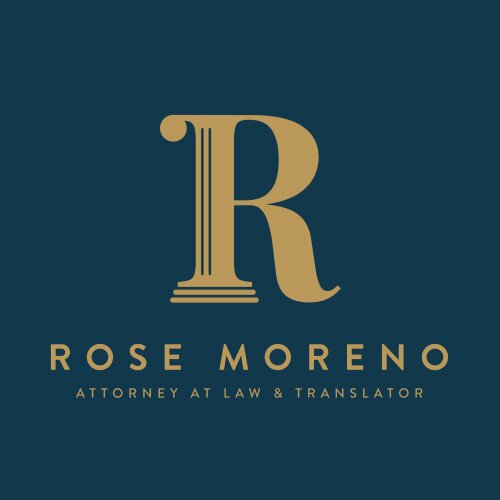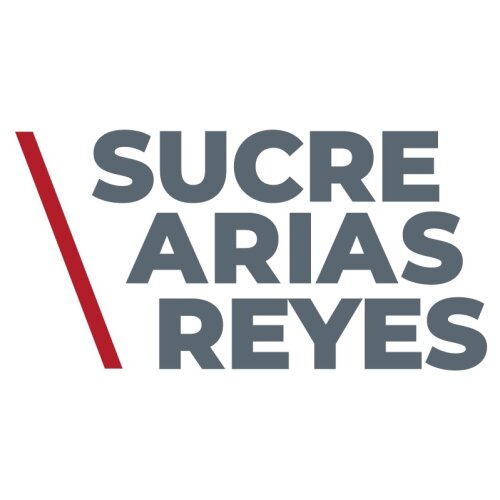Best Inheritance Law Lawyers in Panama
Share your needs with us, get contacted by law firms.
Free. Takes 2 min.
Or refine your search by selecting a city:
List of the best lawyers in Panama
1. About Inheritance Law in Panama
Inheritance law in Panama is primarily governed by the Civil Code of the Republic of Panama. It regulates who inherits when someone dies, how assets are distributed, and how a valid will is prepared and executed. The system recognizes both intestate succession (when there is no will) and testamentary succession (through a legally valid will).
Panama uses a regime of forced heirs (los herederos forzosos) who have a reserved portion of the estate, typically including descendants, a spouse, and sometimes ascendants. The law also provides mechanisms to validate, probate, and register transfers of property to heirs. Understanding these rules helps families avoid disputes and ensure a fair distribution of assets.
Because assets in Panama can include real estate, bank accounts, and businesses, the probate process often intersects with notarial acts, court proceedings, and registry filings. A Panamanian attorney or solicitor can coordinate these steps to minimize delays and protect heirs' rights.
Panama recognizes forced heirs and a reserved portion (legítima) that must be protected for descendants and spouses, affecting how estates are distributed.
Source: Poder Judicial and Panamanian Civil Code resources referenced on official government sites.
2. Why You May Need a Lawyer
Disputes among heirs regarding legítima and asset division arise when children, a surviving spouse, or other relatives disagree on who inherits which assets or on the value of the estate. A legal counsel can map out the rightful shares and negotiate settlements that comply with Panama’s rules on succession.
When a will exists and you want to validate or contest it, you may need counsel to interpret the will, ensure its validity, and prepare petitions for probate or challenge a will that seems invalid or improperly executed. Lawyers help gather witnesses, notarizations, and all required documents.
International or cross-border estates occur when assets are in Panama and abroad, or a foreigner owns property in Panama. A solicitor can coordinate multiple jurisdictions, ensure proper recognition of foreign wills, and handle currency and tax considerations.
Real estate transfers and title cleanups often require purging encumbrances, resolving co-ownership issues, and updating titles with the Registro Público. An attorney ensures transfers follow protocol and avoids gaps that could cause future disputes.
Executor or administrator roles may require formal appointment and fiduciary duties. If you are named an executor or administrator, legal counsel can guide you through filing motions, inventory, and estate accounts with the court.
Debt settlement and creditor claims involve notifying creditors, validating claims, and prioritizing payments according to the law. A lawyer can help protect heirs from improper claims and ensure a fair process.
3. Local Laws Overview
The main framework for inheritance in Panama rests on the Código Civil, which governs succession, testaments, and the rights of heirs. This code sets out the order of succession, the concept of legítima, and the formalities for creating and executing wills.
Código Civil de la República de Panamá - primary statute governing intestate and testamentary succession, including how shares are distributed and how heirs are identified.
The legal process for transferring estate assets relies on related regulatory statutes and administrative procedures. These include notarial acts for wills and probate and registry filings for property transfers.
Ley de Notariado y Regulación de Testamentos - governs the preparation and formalization of wills through notaries, including open and closed will formats and proper witnessing.
Ley de Registro Público - governs the public recording and inscription of real estate transfers and inherited rights in the Registro Publico, ensuring that title transfers are publicly acknowledged.
Recent trends in Panama show ongoing modernization of probate filings and greater emphasis on properly documenting heirs and asset inventories. For precise article references and the latest amendments, consult official sources and a licensed attorney.
4. Frequently Asked Questions
What is inheritance law in Panama?
Inheritance law in Panama governs how a deceased person’s assets are distributed. It covers intestate succession, testament validity, and the rights of heirs and creditors.
How do I start a probate in Panama?
Begin by gathering the death certificate, the will if any, property deeds, and a list of assets and debts. Then consult a Panamanian attorney to file the petition in the appropriate court.
What is the legitimate portion or forced heirship in Panama?
La legítima is the reserved portion that certain heirs must receive under law, typically including descendants and a surviving spouse.
How long does a typical probate take in Panama?
Timelines vary by case complexity, asset type, and court workload. Simple estates may move in 6 to 12 months, while complex cases can take longer.
Do I need a Panama attorney to handle inheritance matters?
While not always mandatory, hiring a Panamanian solicitor or attorney is highly recommended to navigate local procedures and avoid mistakes.
Is a will required in Panama, or does intestate succession apply automatically?
A will is not required. If there is no valid will, intestate succession rules determine who inherits.
How much does probate cost in Panama?
Costs depend on estate value, asset types, and court fees. Notary and registry expenses also apply. Obtain a formal estimate from your attorney.
What forms are needed to file a will in Panama?
Common forms include the will document itself, death certificate, heir certificates, asset inventories, and receipts for prior taxes or debts.
Can a foreign will be recognized in Panama?
Foreign wills can be recognized if properly translated, authenticated, and compatible with Panamanian law. A local attorney can advise.
Should I avoid revoking a will or making errors in its execution?
Yes. Errors can invalidate or complicate probate. Always follow formal notarization, witness requirements, and registry filings.
Do I need to prove heir status for each asset?
Yes. Heir status and asset ownership must be established for each asset to transfer rights legally.
Is there any tax implication on inheritance in Panama?
Panama has various taxes and duties that may apply; consult with a lawyer about any duties or stamp taxes that could arise, depending on asset types.
5. Additional Resources
- Poder Judicial de la República de Panamá - administers court proceedings including succession and probate, and provides forms and guidance for multiple jurisdictions. https://www.organojudicial.gob.pa
- Procuraduría General de la Nación - defends legal rights and supervises actions related to estates, guardianships, and fiduciary matters. https://www.procuraduria.gob.pa
- Registro Público de Panamá - público registro of real estate and herencias, necessary for inscribing transfers and titles. https://www.registropublico.gob.pa
6. Next Steps
- Identify all assets and debts of the deceased, including real estate, bank accounts, and business interests, within 2 weeks of notice of death.
- Gather key documents: death certificate, will (if any), family records, property deeds, and last tax filings within 2-4 weeks.
- Consult a Panamanian inheritance solicitor to review assets, heirs, and potential taxes within 2-6 weeks.
- Decide on probate approach: file for intestate succession or initiate probate through a will, with your attorney’s guidance, within 1-2 months.
- Prepare and file required petitions with the appropriate court, along with inventories and appraisals, within 1-3 months.
- Coordinate with the Registro Público for title transfers and inscriptions, following court approval, within 1-6 months depending on case complexity.
- Close the estate by distributing assets to heirs and filing final accounts with the court within 6-12 months for straightforward estates, longer for complex ones.
Lawzana helps you find the best lawyers and law firms in Panama through a curated and pre-screened list of qualified legal professionals. Our platform offers rankings and detailed profiles of attorneys and law firms, allowing you to compare based on practice areas, including Inheritance Law, experience, and client feedback.
Each profile includes a description of the firm's areas of practice, client reviews, team members and partners, year of establishment, spoken languages, office locations, contact information, social media presence, and any published articles or resources. Most firms on our platform speak English and are experienced in both local and international legal matters.
Get a quote from top-rated law firms in Panama — quickly, securely, and without unnecessary hassle.
Disclaimer:
The information provided on this page is for general informational purposes only and does not constitute legal advice. While we strive to ensure the accuracy and relevance of the content, legal information may change over time, and interpretations of the law can vary. You should always consult with a qualified legal professional for advice specific to your situation.
We disclaim all liability for actions taken or not taken based on the content of this page. If you believe any information is incorrect or outdated, please contact us, and we will review and update it where appropriate.
Browse inheritance law law firms by city in Panama
Refine your search by selecting a city.










